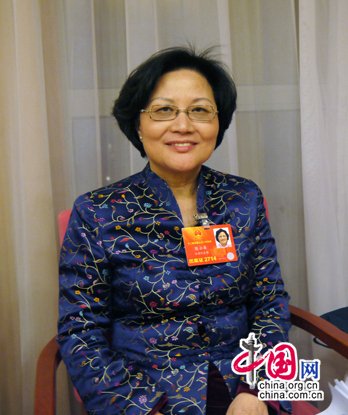Education for the disabled essential to society
- By Zhang Fang
 0 Comment(s)
0 Comment(s) Print
Print E-mail China.org.cn, March 15, 2013
E-mail China.org.cn, March 15, 2013
A draft revision on regulating education for the disabled was finally sent to the State Council for final approval after three years delay.
|
Chen Yunying, a special education expert and senior researcher at the National Institute of Education Sciences |
"Many special needs children have grown up in the past three years and can't wait for this new revision to be implemented," said Chen Yunying, a special education expert and senior researcher at the National Institute of Education Sciences.
Regulations on the Education of Persons with Disabilities entered into force in 1994, and Chen and her colleagues began lobbying for reform in 2010.
A deputy to the National People's Congress, Chen called for improvements in disabled people's education during an interview with China.org.cn on March 8.
The 50-statute draft covers education for disabled students at normal and special education schools, and stipulates that students cannot be refused admission due to disabilities.
Lack of funding is a major obstacle for disabled Chinese students. "Special education is costly because students need specialized equipment such as beads and tablet computers," Chen said.
One of the major improvements in the new draft is an increase in funding. "In China's remote poor areas, it's hard to help without money," she said.
The annual subsidy for disabled Chinese students is 700 yuan (US$112.55) in China's western and central regions, and 750 yuan (US$120.59) along the eastern coast. In addition, another 50 million yuan (US$8.04 million) is provided for special education schools to purchase much needed equipment.
With the development of technology, she said it's time for people to abandon the old concept that disabled students can't achieve: "Look at physicist Stephen Hawking. He has contributed a great deal to the study of science."






